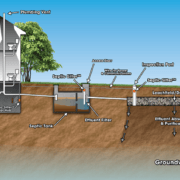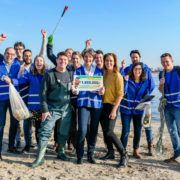Amsterdam, February 6, 2019 – Mussels attach themselves with thin threads to a hard surface, rock or rope. These byssal threads, or “beards”, are exceptionally strong and elastic and can withstand currents and the wash of waves. The mussels are attached to each other with the same threads, leading to the creation of mussel beds. Mussel beds are of great importance both ecologically and economically.
Irish research, published in Environmental Pollution, has established that blue mussels (Mytilus edulis), which are subjected to polyethylene microplastics for a period of 52 days, loose their grip. Polyethylene is a kind of plastic used for, amongst other things, packaging.
The strength of the byssal threads was reduced by 50%, and the mussels that were subjected to the microplastics also produced a significantly lower number of threads. Further, the subject mussels were found to have a weakened immune system and metabolism.
Lead researcher Danielle Green warns in The Guardian for the negative effect to the biodiversity of the mussel beds when the mussels wash away as a result of their weakened grip.
This is one of the first studies concerning the damaging effect to the ecosystem. At the end of last year, French researchers showed that chemicals that attach themselves to plastics in seawater, or which leach from plastic, paralyse the defence mechanism of winkles. In this way these shellfish become easier prey for crabs: this, too, disturbs the natural balance.





